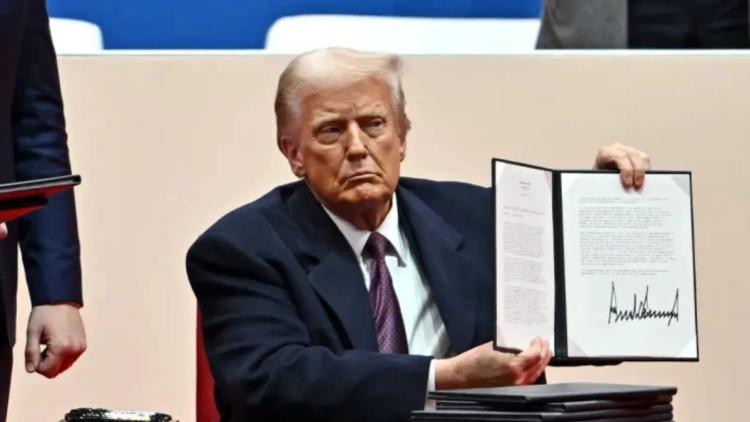U.S. President Donald Trump has once again classified Nigeria as a “Country of Particular Concern” (CPC), citing what he described as widespread persecution of Christians. The announcement, made on Friday, has stirred renewed debate about Nigeria’s human rights record. Trump claimed that Christianity in Nigeria is facing an “existential threat,” accusing radical Islamist groups of carrying out what he called a “mass slaughter” of Christians.
This follows similar claims made in September by U.S. Senator Ted Cruz, who said during a podcast with TV host Bill Maher that Christians in Nigeria were being systematically targeted and killed, a situation he labeled as genocide. The Nigerian government, however, has strongly denied these accusations, calling them false and “malicious propaganda” designed to tarnish the country’s image internationally.
But what exactly does this “Country of Particular Concern” label mean, and what are its implications for Nigeria?

The act lists the severe violations as:
Torture or cruel, inhuman, or degrading treatment or punishment
Prolonged detention without charges
Causing the disappearance of persons by abduction or secret detention
Other flagrant denials of the right to life, liberty, or security of personsIs CPC a global practice?
The designation of a CPC is unique to the United States. No other country or international body uses this exact classification in such a formalized way.
What are the implications of CPC on Nigeria?
Being labeled a “Country of Particular Concern” carries serious implications. When the United States places a country on this list, it formally notifies Congress to take action against that nation for severe violations of religious freedom.
The first steps usually involve non-economic measures such as diplomatic pressure, public criticism, or direct engagement with the government to encourage reforms. If these efforts fail, economic sanctions may follow.

Possible actions include suspending development aid, restricting military or security assistance, opposing loans from international financial institutions, or blocking export licenses. Beyond these immediate effects, Nigeria’s human rights record will face closer scrutiny from both the U.S. and global human rights organizations.
The designation increases pressure on Nigerian authorities to respond more effectively to religious violence and protect minority faith groups.
Is this the first CPC designation for Nigeria?
Nigeria was first listed as a CPC in 2020, during the final year of Trump’s first term. However, sanctions were waived at the time in what the U.S. described as “an important national interest.” Nigeria was later removed from the list under the Biden administration.
Is Nigeria the only country designated as CPC?
No. Other countries designated as CPC in 2023 included Burma, China, Cuba, Eritrea, Iran, North Korea, Nicaragua, Pakistan, Russia, Saudi Arabia, Tajikistan, and Turkmenistan.

Nigerian government rejects allegations
The Nigerian government has strongly dismissed Trump’s claims, describing them as misleading and inaccurate. Ministry of Foreign Affairs spokesperson Kimiebi Ebienfa stated that Nigerians of all faiths have historically lived and worked together in harmony.
“Nigeria remains committed to fighting terrorism, strengthening interfaith harmony, and protecting the lives and rights of all its people under the leadership of President Bola Ahmed Tinubu,” Ebienfa said.
Minister of Information and National Orientation Mohammed Idris added that violence in Nigeria affects people of all religions and is largely driven by banditry, insurgency, and land disputes, not faith.
He highlighted the government’s counterterrorism efforts, noting that over 13,500 terrorists have been neutralized and nearly 10,000 hostages rescued between May 2023 and February 2025.
Presidential spokesperson Bayo Onanuga also emphasized Nigeria’s long history of peaceful coexistence, saying, “Nigeria is home to nearly equal populations of Muslims and Christians who live side by side peacefully in most regions. Portraying the country as a place of religious genocide is unfair and inaccurate.”

Even within Trump’s advisory team, some officials, such as Massad Boulos, senior adviser on Arab and African affairs, have noted that terrorism in Nigeria “has no colour or religion” and affects citizens of all faiths.
Meanwhile, the Nigerian Senate has established a 12-member ad hoc committee to develop a comprehensive response to international concerns about alleged persecution of Christians.




